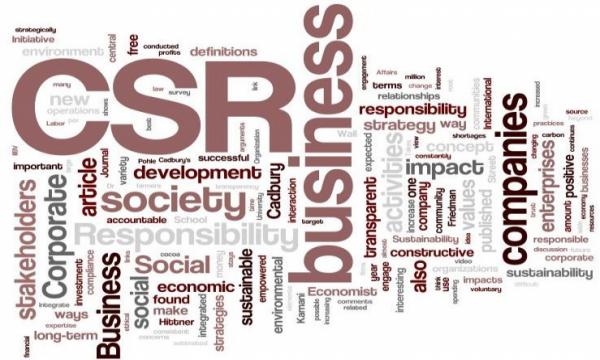Launching a corporate social responsibility program can sound like a big undertaking.
The good news: Your organization doesn’t have to set out to save the world. Starting small can have a huge impact on your community and your customers. After all, 55 percent of consumers say they’re willing to pay more for products from socially responsible organizations.
If you’ve considering taking on a fundraising, public health or scholarship initiative, these benefits of engaging in more responsible business practices will become apparent quickly:
Already have a program in place? Get recognized for it! Enter PR Daily’s 2017 Corporate Social Responsibility Awards.
1. You’ll bring employees together
A CSR program might seem to affect only your organization and the cause you’re passionate about, but it can also have a positive impact on your workforce. Developing a volunteer program, for example, can get your employees involved in the community and help them get to know each other outside of the workplace.
An infographic created by Officevibe shows that employees are more engaged when they have friends at work. A volunteer program is a great way to provide a bonding experience for new and seasoned employees alike, especially those who may have relocated for their current position in your organization.
Something as simple as spending a few hours working together at an animal shelter could have a lasting impact. You could take it even further, as U.S. Bank did. Its team logged almost 100,000 hours of volunteer work across multiple states with their #CommunityPossible bus relay volunteer program.
U.S. Bank set out to build its reputation locally and engage employees. The employees were able to be of service to more than 138,000 people.
2. You’ll instill pride in your clients and partners
An effective corporate social responsibility program will show your clients and partners that you have common goals. Whether you work for a corporation or a nonprofit organization, partnering for the greater good can only result in positive outcome.
Viacom collaborated with musician Peter Gabriel’s foundation WITNESS to inspire a new generation of citizen journalists to harness the power of video. Incorporating this program into their Viacommunity CSR efforts generated great results. The effort earned them coverage in publications like PRWeek, Adweek, and Media Post, along with a PR Daily Awards win, garnering more than 30 million impressions across social media alone.
3. You’ll improve your reputation and earn recognition
Whether your brand’s reputation has taken a hit or you just want to be recognized for your efforts in the community, a corporate social responsibility program can be just what you need.
The casual consumer might consider a spirits organization like Bacardi Limited to be all about having a good time. However, Bacardi’s “No Straws” Pledge has positioned it as an environmentally conscious organization.
The pledge proposes a simple action: Order drinks without straws to reduce plastic waste. It saw huge results. Bacardi earned 2,600 news articles, a fifth consecutive appearance in Forbes’ “World’s Most Reputable Companies” list, a host of customer partnerships and 1,600 hours of employee time contributed by more than 2,500 employees to 100 corporate responsibility activities.
It also earned their team accolades in many communications awards programs, including Ragan’s Employee Communications and PR Daily Awards.
4. You’ll make the world a better place
The ultimate goal of any CSR program is to be of service to the community. There’s no greater benefit than knowing that part of your job allows you to help others and see real results where you and your employees live.
Turk Telekom’s community education initiative, “Life is Simple with Internet,” is a perfect example of such a program. In this digital age, citizens without computer skills have a harder time finding jobs and staying informed about current events, and they can be left out of government and social decisions.
Turk Telekom’s program provided computer skills and internet training for 123 young people from various cities in Turkey. Those recipients became instructors themselves and went on to teach thousands of others about basic internet usage, including email, online banking, social networks, internet security, e-shopping and more. Eighty-six percent of participants now use the internet daily.
This article was taken from here.

